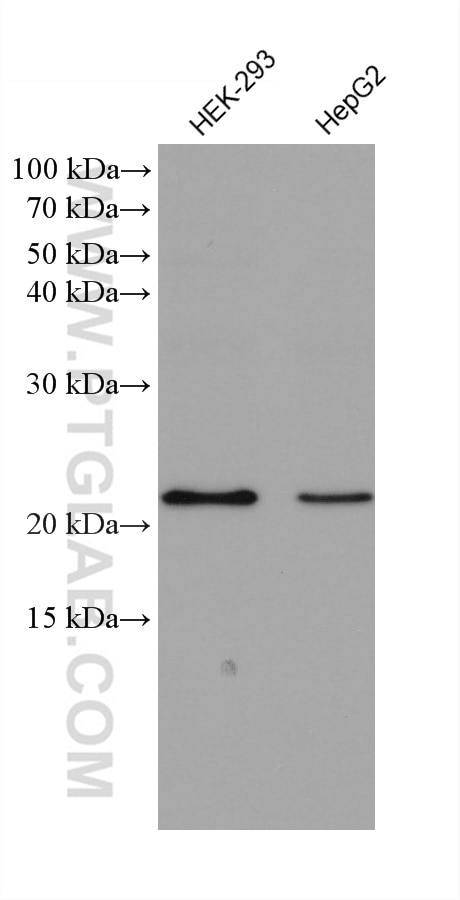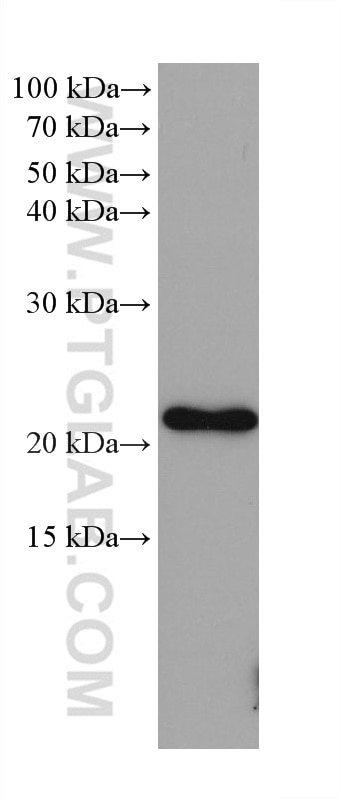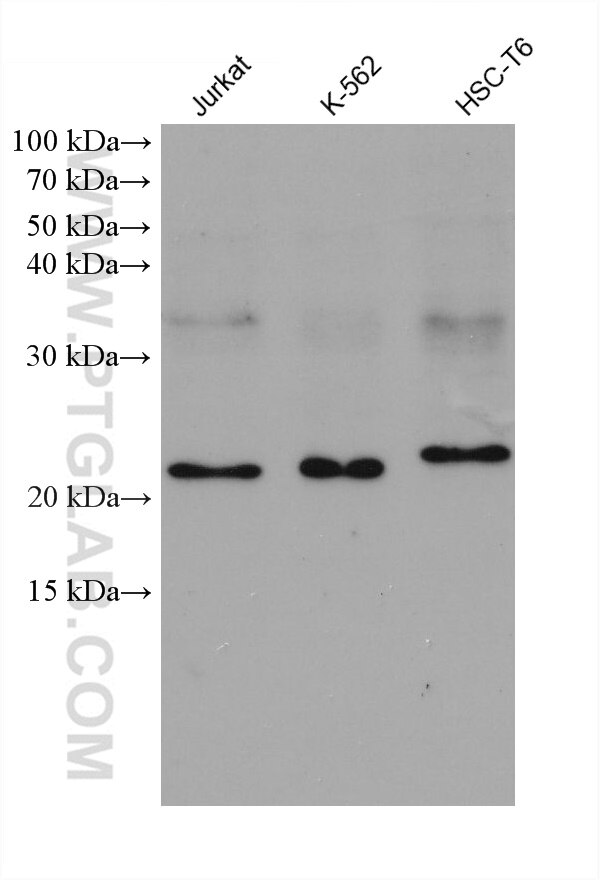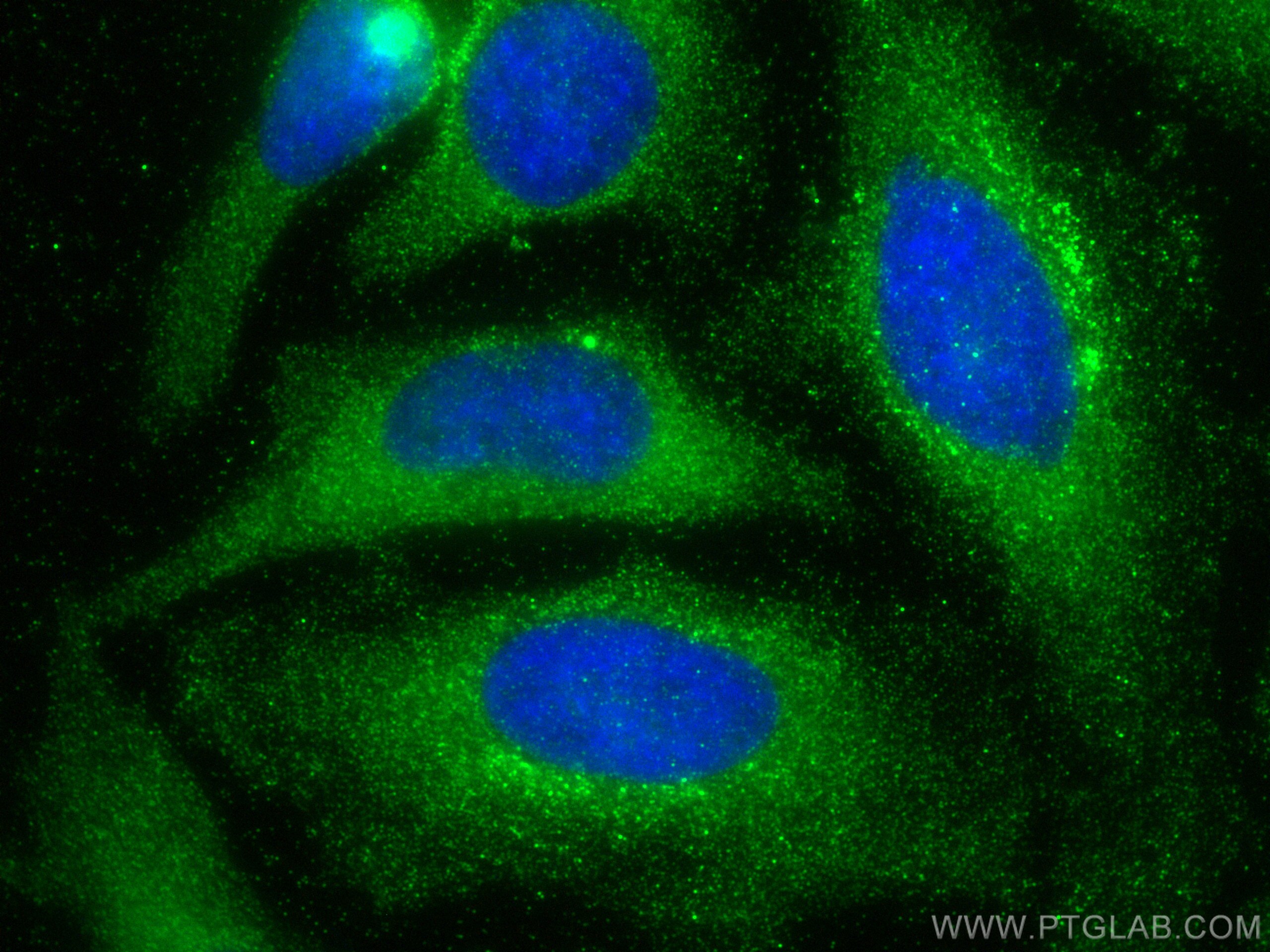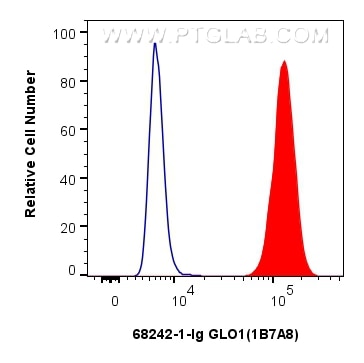Anticorps Monoclonal anti-GLO1
GLO1 Monoclonal Antibody for WB, IF/ICC, FC (Intra), ELISA
Hôte / Isotype
Mouse / IgG2a
Réactivité testée
Humain, rat, souris
Applications
WB, IF/ICC, FC (Intra), ELISA
Conjugaison
Non conjugué
CloneNo.
1B7A8
N° de cat : 68242-1-Ig
Synonymes
Galerie de données de validation
Applications testées
| Résultats positifs en WB | cellules HEK-293, cellules HepG2, cellules HSC-T6, cellules Jurkat, cellules K-562, cellules LNCaP |
| Résultats positifs en IF/ICC | cellules HeLa, |
| Résultats positifs en FC (Intra) | cellules HeLa, |
Dilution recommandée
| Application | Dilution |
|---|---|
| Western Blot (WB) | WB : 1:1000-1:6000 |
| Immunofluorescence (IF)/ICC | IF/ICC : 1:200-1:800 |
| Flow Cytometry (FC) (INTRA) | FC (INTRA) : 0.40 ug per 10^6 cells in a 100 µl suspension |
| It is recommended that this reagent should be titrated in each testing system to obtain optimal results. | |
| Sample-dependent, check data in validation data gallery | |
Informations sur le produit
68242-1-Ig cible GLO1 dans les applications de WB, IF/ICC, FC (Intra), ELISA et montre une réactivité avec des échantillons Humain, rat, souris
| Réactivité | Humain, rat, souris |
| Hôte / Isotype | Mouse / IgG2a |
| Clonalité | Monoclonal |
| Type | Anticorps |
| Immunogène | GLO1 Protéine recombinante Ag7314 |
| Nom complet | glyoxalase I |
| Masse moléculaire calculée | 21 kDa |
| Poids moléculaire observé | 21-25 kDa |
| Numéro d’acquisition GenBank | BC001741 |
| Symbole du gène | GLO1 |
| Identification du gène (NCBI) | 2739 |
| Conjugaison | Non conjugué |
| Forme | Liquide |
| Méthode de purification | Purification par protéine A |
| Tampon de stockage | PBS with 0.02% sodium azide and 50% glycerol |
| Conditions de stockage | Stocker à -20°C. Stable pendant un an après l'expédition. L'aliquotage n'est pas nécessaire pour le stockage à -20oC Les 20ul contiennent 0,1% de BSA. |
Informations générales
Glo1 (glyxoalase I) is a cytosolic protein expressed in all mammalian cells. Its physiological function is the detoxification of MG (methylglyoxal), which is a potent precursor of AGEs (advanced glycation end-products). Glo1 is known to play a role in many diseases including diabetes mellitus, Alzheimer's disease, and cancer.
Protocole
| Product Specific Protocols | |
|---|---|
| WB protocol for GLO1 antibody 68242-1-Ig | Download protocol |
| IF protocol for GLO1 antibody 68242-1-Ig | Download protocol |
| Standard Protocols | |
|---|---|
| Click here to view our Standard Protocols |
